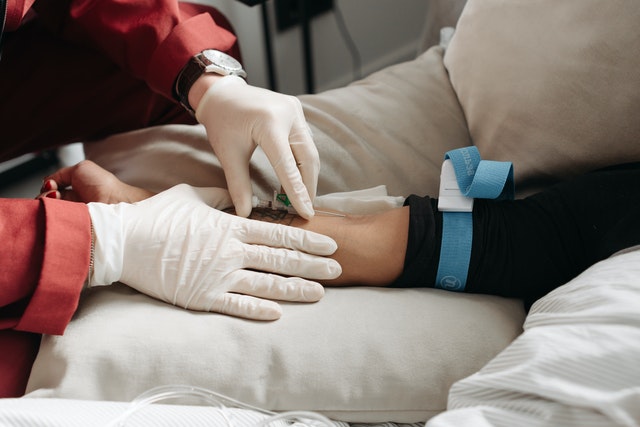North Carolina has been heavily impacted by the opioid crisis, and the problem is only growing. Each year, drug overdose deaths increase, and in the first six months of 2022, there have already been 326 suspected deaths caused by opioid overdoses.
At the same time, North Carolina also has very strict drug laws in place and continues to pass new laws to increase penalties, such as by making possession of fentanyl a class I felony. Because of this, people may be scared to call 911 if they are having an overdose or to report if someone with them is in distress. However, the state does offer limited immunity in certain cases. Our criminal lawyers in Raleigh are breaking this down to help you better understand how limited immunity works and whether you can go to jail for overdosing or reporting an overdose.

What Is Limited Immunity Related to an Overdose
Limited immunity is covered in the North Carolina General Statute 90-96.2c. In the document, it lays out the specific criteria and guidelines that must be met in order for a victim or a good samaritan reporting an overdose to not be charged with a crime.
The limited immunity guidelines for a samaritan ensure that if these five criteria are met, they will not be prosecuted, nor will their probation or parole be revoked:
- 1.) The samaritan sought medical assistance for the overdose victim by calling 911 or reaching out to a law enforcement officer or emergency medical personnel.
- 2.) They acted in good faith, believing they were the first to call for help.
- 3.) They provided their own name to the 911 operator or law enforcement officer when they arrived on the scene.
- 4.) The samaritan did not seek medical assistance in an attempt to thwart the execution of a warrant.
- 5.) Any evidence for prosecution related to covered offenses was obtained during the course of the person seeking medical help for the overdose victim.
Basically, if an individual is genuinely seeking medical help for someone having an overdose, and they aren’t trying to cover up information, they are most likely free from prosecution or having their probation or parole revoked. The limited immunity also applies to the overdose victim assuming the applicable guidelines above are met and satisfied.
Are All Drug Offenses Applicable to Limited Immunity?
It’s important to note that if a law enforcement officer arrives on the scene of an overdose, the individual reporting the overdose and the victim will only have limited immunity from prosecution only for the following offenses:
- – A misdemeanor drug possession charge, such as a small amount of marijuana.
- – Possession of less than one gram of cocaine.
- – Possession of less than one gram of heroin.
- – Possession of drug paraphernalia, such as rolling papers.
For example, if someone calls 911 due to someone else having an overdose, and the samaritan is found to be in possession of 5 grams of marijuana and they meet the guidelines listed above, they will have immunity from prosecution. On the other hand, if they have three grams of cocaine or any amount of fentanyl or methamphetamine, they can be charged with a crime.
Should You Call an Attorney After Reporting an Overdose?
We would highly recommend speaking with an attorney if you witness or report an overdose, particularly if you supplied the drugs that triggered the overdose, had a controlled substance in your possession, or are on parole or probation. While there is limited immunity in place, the laws are very confusing, and you certainly don’t want to be penalized for doing the right thing.
Schedule a Free Consultation with a Criminal Lawyer Today
If you see that someone is having an overdose or you are in medical distress after taking a controlled substance, you should immediately seek emergency medical treatment. However, if doing so may make you vulnerable to legal action or prosecution, we’re here to help. At Sandman, Finn & Fitzhugh, we represent clients in Raleigh, Wake County, and Franklin County. Call us at 919-887-8040 24 hours a day, 7 days a week to speak with an attorney or fill out the form below to schedule a free case consultation.
